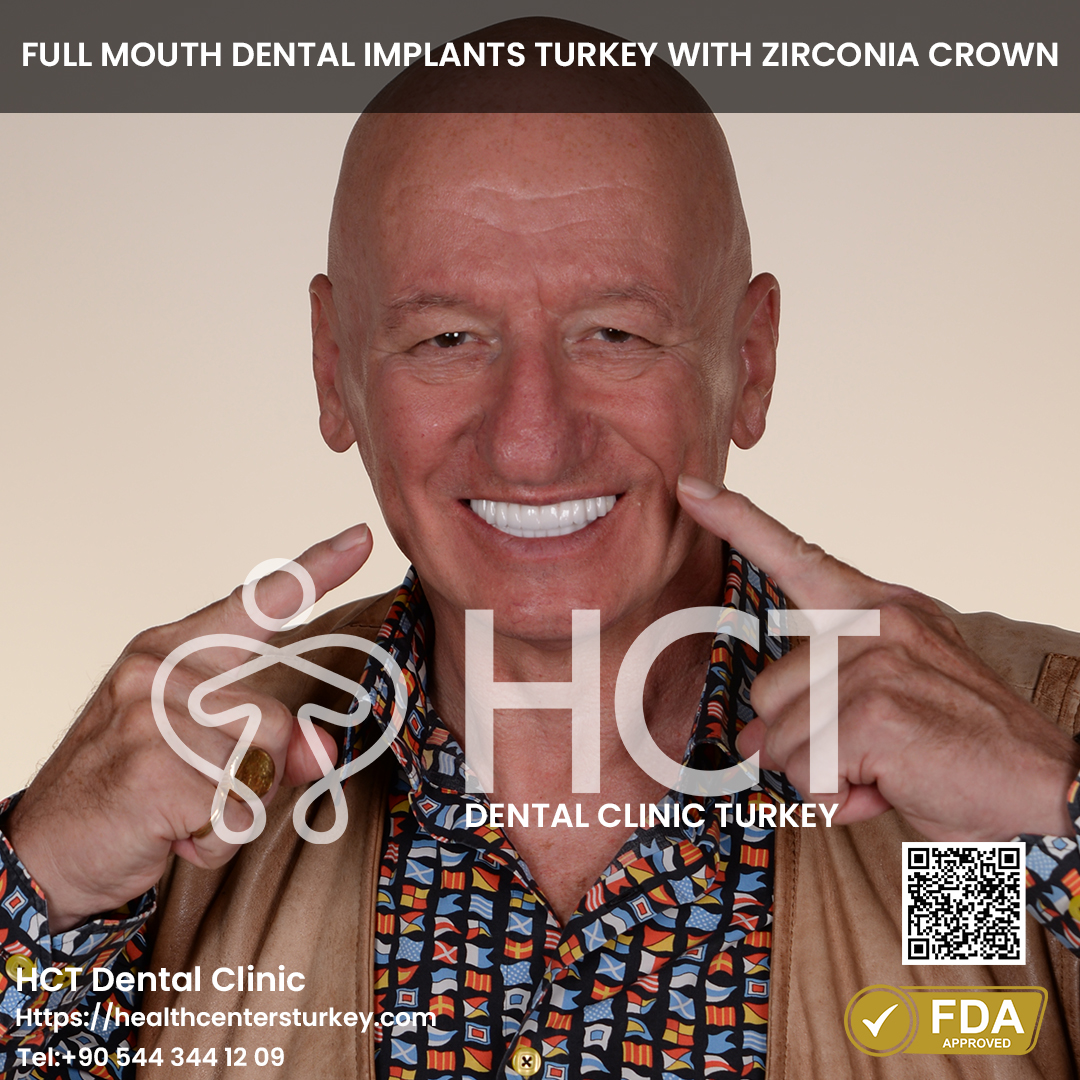What to Expect from Dental Procedures in Turkey
Improve Your Teeth Appearance using Advanced Dental Solutions

Dental implants have turn out to be a focus in trendy dentistry, providing a reliable resolution for these facing tooth loss. Among the a quantity of advantages they provide, one vital side worth considering is their impact on adjacent teeth. Understanding how dental implants affect surrounding teeth aids in making knowledgeable decisions about oral health.
When a tooth is misplaced, neighboring teeth can easily shift towards the house left behind. This movement can result in misalignment, which compromises the general bite and performance of the mouth. Dental implants mimic natural tooth roots, thereby sustaining the position of adjacent teeth.
Quick Care Services for Time-Conscious Visitors
The stability supplied by an implant is crucial, because it helps in preserving not just the physical alignment but also the structural integrity of the jawbone. When a tooth is missing, the underlying bone can begin to deteriorate as a end result of lack of stimulation. An implant exerts stress on the bone during chewing, just like a natural tooth, which promotes bone health.
In some circumstances, a bridge or partial denture could also be thought-about as an alternative to implants. While these choices could restore some functionality, they can place further stress on neighboring teeth. Bridges normally require filing down the surrounding teeth to accommodate the anchors, thereby affecting their health over time. Dental implants, on the opposite hand, don't alter current teeth, making them a more conservative choice.
Reveal Your Whitest Smile with Expert Dental Care in Turkey
Hygiene turns into another critical issue when considering adjacent teeth within the context of implants. With dental implants, the individual can maintain an everyday hygiene routine much like natural teeth. Flossing and brushing around the implant are straightforward, making certain that the gum tissue stays wholesome and minimizing the chance of gum disease that might adversely have an effect on adjacent teeth.
Moreover, the materials used in dental implants are biocompatible. This means they're designed to combine properly with the body, lowering the possibilities of an opposed response. This attribute not only makes the implant protected but additionally protects nearby teeth from potential points that might come up because of contamination or infection.
In terms of aesthetics, dental implants supply a natural feel and appear, closely resembling authentic teeth. Adjacent teeth benefit from this aesthetic attraction as well. When an implant is positioned, the encircling gum tissue may be formed to imitate natural contours, thereby enhancing the general appearance of the smile. This aesthetic issue can encourage people to invest in their oral care routines, benefiting each the implants and adjacent teeth in the long run.
Cost-Effective Teeth Care in Turkey for international patients
Another concern is the potential for gum disease, which may have an result on the health of adjacent teeth. Gum disease can happen when plaque builds up round teeth and implants. Regular dental visits and applicable oral hygiene can mitigate this concern. The presence of implants can also serve as a motivator for better dental hygiene practices, as individuals turn into more acutely aware of sustaining their overall mouth health.
Studies have shown that dental implants can contribute to a significant enchancment in quality of life. Patients typically experience elevated confidence and are much less hesitant to smile or have interaction in social interactions. A healthy and well-maintained smile indirectly promotes higher look after adjacent teeth, as individuals tend to become extra aware of their total oral hygiene.
One often-overlooked aspect is the psychological impact of dental implants on sufferers. Knowing that implants offer long-term options can ease the anxiousness associated with tooth loss. With fewer worries about future tooth shifts, patients are more doubtless to make investments time and effort into caring for their teeth, which incorporates adjacent teeth.
In conclusion, dental implants serve as greater than only a solution for missing teeth; they play a pivotal function in maintaining the health and integrity of adjacent teeth. From preventing misalignment to promoting gum health and enhancing aesthetics, the benefits are manifold. By choosing implants, people can't only restore performance but in addition foster a healthier oral surroundings for surrounding teeth. The psychological and aesthetic benefits further contribute to an overall enhanced quality of life.
Enjoy High-Quality Dental Treatments at Turkey at Competitive Prices
In the long term, understanding how dental implants turkey dental implants affect adjacent teeth can information individuals in making empowered selections relating to their dental health. The integration of those implants into the mouth acts as a stabilizing pressure, safeguarding each the physical alignment and functionality of neighboring teeth, whereas promoting a long-lasting, healthy smile.
- Dental implants usually do not exert pressure on adjacent teeth, maintaining their integrity and lowering the danger of shifting or misalignment.
- The placement of an implant usually encourages better oral hygiene habits, positively influencing the health of adjacent teeth via improved cleansing practices.
Achieving a Stunning Smile with Implants and Veneers
- In some circumstances, dental implants can stimulate the surrounding bone, which helps protect the natural teeth's position and general dental structure.

- The gap left by missing teeth can lead to bone loss; dental implants can prevent this, thereby defending adjacent teeth from potential problems.
- Uncover Your Path to a Beautiful Smile with Affordable Dental Care
Affordable Teeth Brightening Treatments for a Radiant Smile
- By restoring the operate of a missing tooth, implants assist distribute chew forces evenly, reducing put on and stress on neighboring teeth.

- Properly placed dental implants can act as a help structure, preventing unwanted motion of adjacent teeth ensuing from tooth loss.
- The presence of an implant could improve the aesthetic appearance of surrounding teeth by filling in gaps and supporting facial structure.
Price Comparison for Dental Care in Turkey
- Dental implants get rid of the necessity for adjacent teeth alteration, not like bridges, which require reshaping the nearby teeth for assist.
- Implants also scale back the chance of gum disease compared to other tooth replacement options, indirectly benefiting adjacent teeth by selling general oral health.
Understanding Treatment Costs for Dental Care in Turkey.
- Long-term success of dental implants is linked to the health of surrounding teeth, emphasizing the significance of standard dental check-ups and maintenance.
How do dental implants affect adjacent teeth?
Exceptional Dental Services Focused on Customer Satisfaction
What are dental implants and how do they work with adjacent teeth?undefinedDental implants are artificial tooth roots placed into the jawbone to assist replacement teeth. They don’t have an result on adjacent teeth immediately, as they are independent constructions. Instead, they might help maintain the integrity of surrounding teeth by stopping bone loss.
Can dental implants trigger injury to adjacent teeth?undefinedIf placed correctly, dental implants mustn't harm adjacent teeth. However, improper placement can lead to points like misalignment or strain, emphasizing the significance of selecting an experienced dental skilled.
Will dental implants promote bone development around adjacent teeth?undefinedYes, dental implants help stimulate the jawbone, which might encourage bone progress. This can benefit adjacent teeth by sustaining bone density and stability in the area.
Navigate Your Dental Journey in Turkey
Should I fear about gum disease affecting adjacent teeth after getting an implant?undefinedGood oral hygiene is essential after getting an implant. Gum disease can see page still have an result on adjacent teeth, but a properly maintained implant doesn't increase that risk. Regular dental visits may help monitor and keep gum health.
What happens to adjacent teeth if I lose a dental implant?undefinedIf a dental implant fails or is misplaced, adjacent teeth might shift as a result of adjustments in chew alignment and assist structure. This might lead to misalignment or further tooth loss if not addressed.
Are there any special care necessities for adjacent teeth after getting implants?undefinedMaintaining good oral hygiene practices, including common brushing, flossing, and dental check-ups, is important for both dental implants and adjacent teeth to stop decay and gum disease.
Highlighting the Top-Rated Teeth Solutions of Turkey for Beautiful Smiles
Do dental implants assist support adjacent teeth when chewing?undefinedAbsolutely. Implants can enhance overall chunk function, which might alleviate stress on adjacent teeth during chewing. This can result in better distribution of forces, promoting oral health.
How can I prevent issues with adjacent teeth and implants?undefinedConsistent dental care, including skilled cleanings and examinations, regular brushing and flossing, and following your dentist’s aftercare directions, are key to preventing problems.
Can adjacent teeth transfer if I truly have a dental implant?undefinedAdjacent teeth could move if they aren't well-supported, particularly after tooth loss. A dental implant helps maintain the structure, decreasing the risk of shifting teeth.